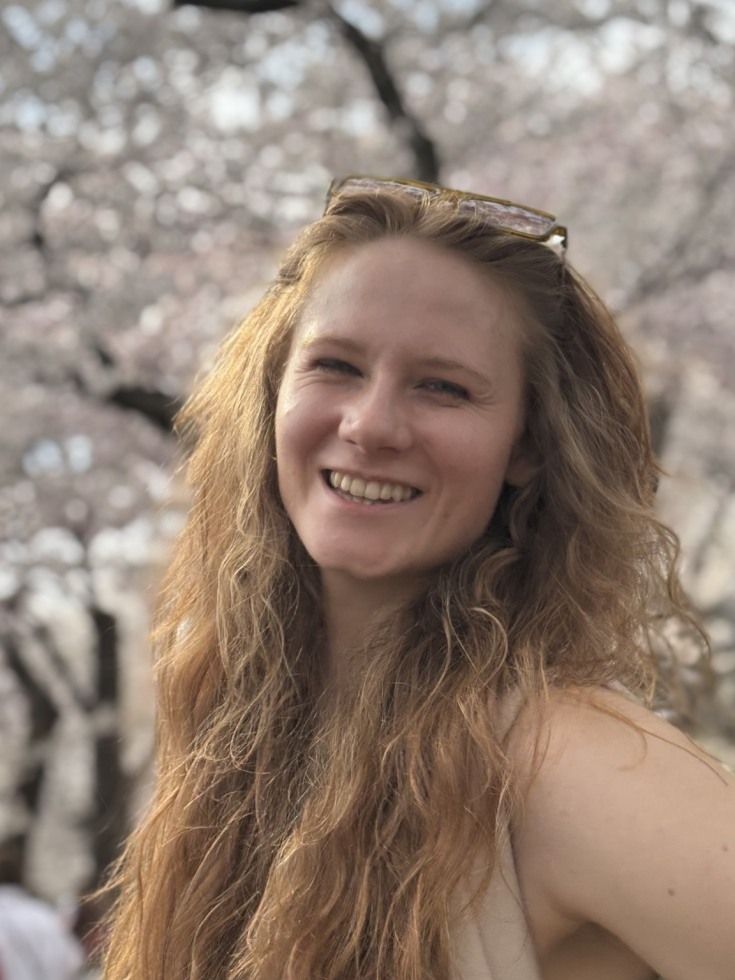"What if the Maryland legislature met in the forest?" asked Amienne Spencer-Blume, a 2023 graduate of Watson's International and Public Affairs (IAPA) program. “What if it met in an elementary school? What if it met in a type of space that we haven't even conceived of yet? Why do we revert to these ingrained and, hence, comfortable and familiar spatial imaginaries? In this sense, very concretely, the literal place in which a floor session happens. Everything begins in relation to the space/place question.”
While at Brown, Spencer-Blume's undergraduate thesis, "Blue Traction: The Datafication of Movement and Bodyfication of Threat in the Rise of Gait and Behavior Recognition Technology," was awarded Watson's Outstanding Thesis Award. Currently, she is a Ph.D. student in sociology at Johns Hopkins University, where she is working on an ethnographic study of the Maryland General Assembly.
Spencer-Blume hopes to gain a deeper understanding of the places where political decisions are made and why. If the 50 U.S. states are laboratories of democracy, why is there no experimentation with regard to space? Why do almost all state capitals and legislative chambers share similar architectural styles? These are the kinds of questions Spencer-Blume hopes to address in her research.
Around the age of one, Spencer-Blume moved from Portland, Oregon, to Bingen, Germany, a small town along the Rhine River about an hour west of Frankfurt. Her mother and father are part-time teachers and freelance musicians. When Spencer-Blume was young, they brought her and her brother to their performances. She spent time traveling to shows, growing up amidst a backdrop of recital halls and practice rooms, watching her parents perform and rehearse onstage and backstage. In time, Spencer-Blume developed a broad curiosity about the all-consuming, ever-present thing called space.
"I spent a lot of time as a kid in these weird spaces. When I was 12, I didn't think about it like this, but in hindsight, I realized a lot of people do totally different things in different spaces," she said. “If you're a performer, you know that space matters; how the stage is set up matters. But when we think about political science and politics, we lose sight of the importance of space, or at least it's not as embedded in our thinking.”
When it came time to apply to college, Spencer-Blume applied to schools in the U.S. as a means of experimenting with what she calls her “second half.”
"My mom put a lot of time and energy into helping my brother and me feel as American as possible growing up in a German town. I always had the sense of having two very different but connected sides. I wanted to apply to colleges in the U.S. experimentally to explore that second half of myself."
